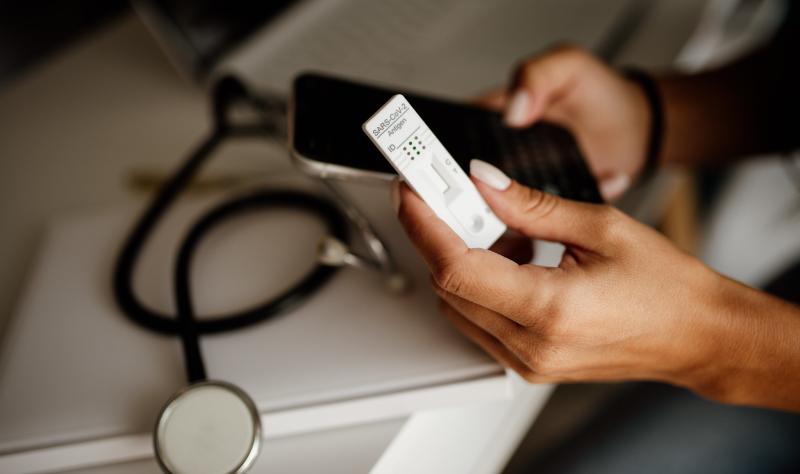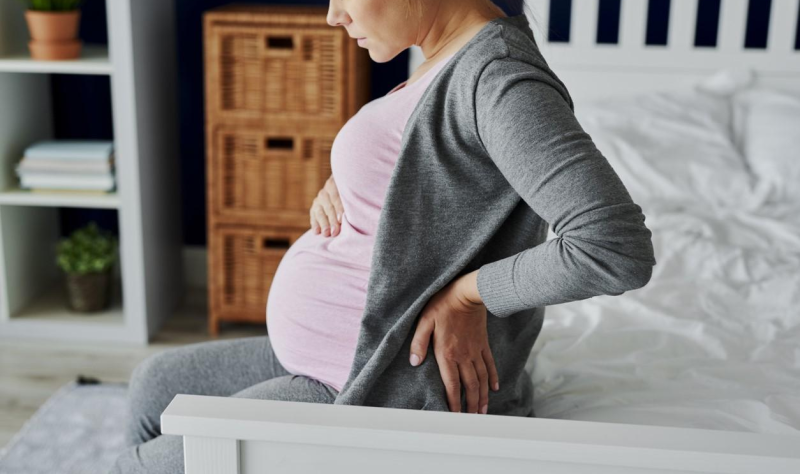6 in 10 healthcare workers with symptoms of respiratory disease say they test for COVID
Only 37% and 22% reported receipt of flu and COVID vaccines, respectively.


Over one third (36%) of Irish healthcare workers (HCWs) reported a symptomatic respiratory illness in 2024 and 2025, with 63% saying they tested for COVID-19, and only 37% and 22% reporting receipt of influenza and SARS-CoV-2 vaccines, respectively, survey results show.
The Trinity College Dublin–led research team collected monthly online questionnaire data from 893 self-selected HCWs from all disciplines at two hospitals for at least 4 months from September 2024 to February 2025.
“HCWs still remain at increased risk of communicable infections, particularly viral upper respiratory tract infections,” they wrote. “In addition to the risks these infections pose to the infected HCWs, there are also associated risks of nosocomial outbreaks amongst vulnerable patient groups.”
The study findings were published today in Antimicrobial Stewardship & Healthcare Epidemiology.
Long COVID tied to having symptoms
Three quarters of participants (76%) reported having a COVID-19 infection before the study began. The median interval from participants’ last COVID-19 infection to study enrollment was 1 year.
In total, 36% of participants said they had symptoms of a respiratory disease during the study period, and a previous diagnosis of long COVID (4%) was tied to developing symptoms. Of these participants, 63% reported testing for COVID-19, a frequency the authors say is in line with Irish HCW guidance.
The vast majority of COVID-19 tests (84%) were performed because of symptomatic illness; other indications included being a close contact of an infected person or those at high risk for severe disease. The only factor tied to testing more than once was having a preexisting risk factor for COVID-19 infection.
Self-testing for COVID-19 was associated with a shorter duration since last confirmed COVID-19 infection. There were 34 positive COVID-19 test results, representing 17% of the HCWs who tested and 4% of all participants. No variables for an increased risk of a positive COVID-19 test were identified.
Low vaccination rate concerning
The most common symptoms were sore throat, cough, nasal discharge, and headache. Vaccine coverage was 37% for flu and 22% for COVID-19 (primary vaccine course plus two booster doses). Older HCWs and those with a more recent SARS-CoV-2 infection were more likely to receive both vaccines, while men had higher odds of COVID-19 vaccination.
Receipt of COVID-19 vaccine is linked with reduced rates of Long COVID, and can therefore be used as a tool to not only prevent acute infection but to mitigate the risk of postinfectious ill-health, recurrent symptomatic episodes, and missed workdays.
“Self-reported symptomatic respiratory infections remain common amongst HCWs,” the researchers wrote. “The legacy of the pandemic influences this, with a preexisting diagnosis of Long COVID associated with increased symptom burden, while low vaccination rates and understanding the factors associated with this present a challenge to ongoing risk mitigation.”
They added that the low COVID-19 vaccination rate is especially worrisome given the association observed between long COVID and symptomatic viral infections. “Receipt of COVID-19 vaccine is linked with reduced rates of Long COVID, and can therefore be used as a tool to not only prevent acute infection but to mitigate the risk of postinfectious ill-health, recurrent symptomatic episodes, and missed workdays,” the authors wrote.



